Mobilising evidence and knowledge bite size 3
These are the slides and transcript from the third video in the mobilising evidence and knowledge bite-size series entitled "Learning During"
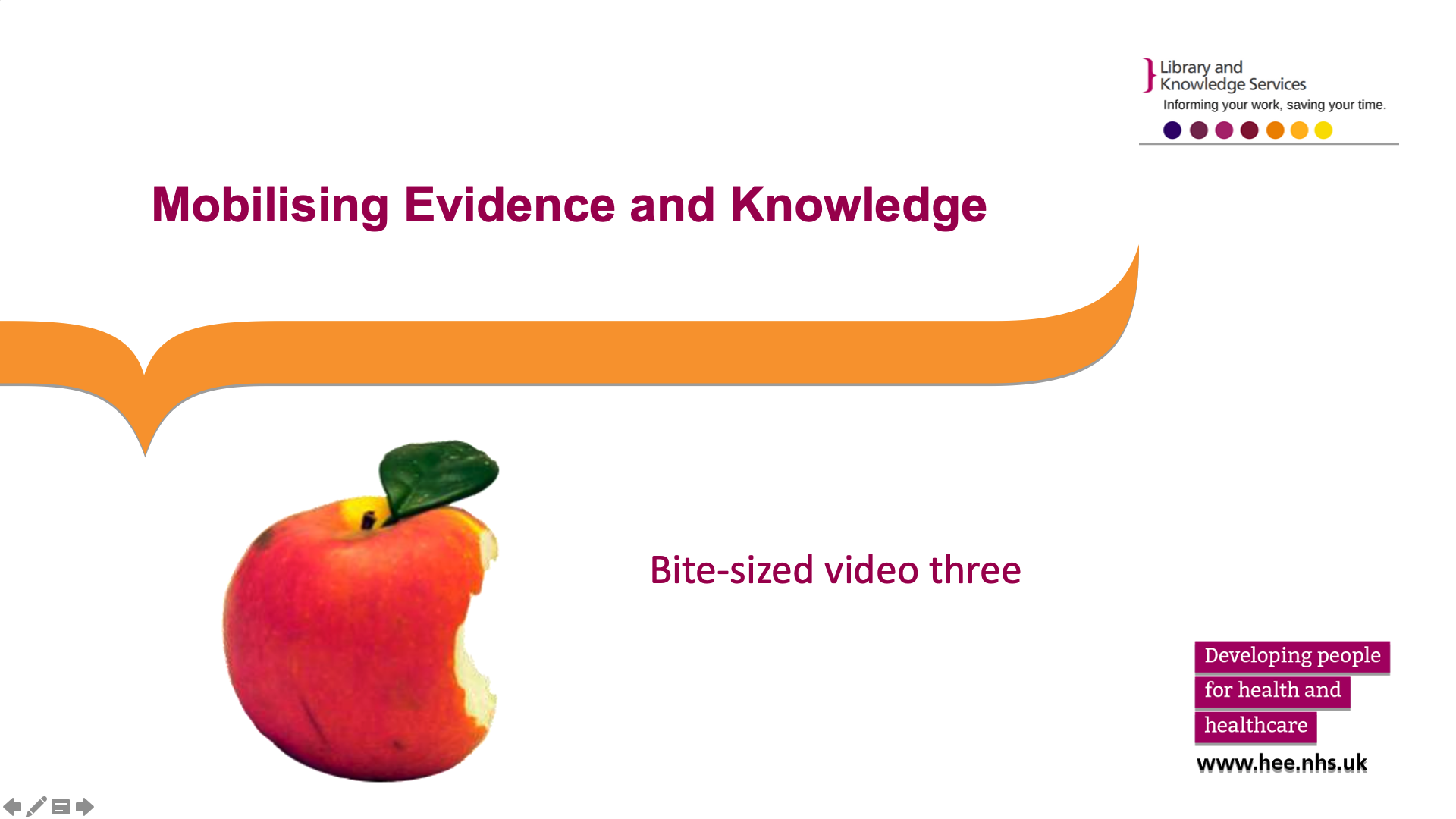
Welcome to the third video in our short series of bite-sized introductions about mobilising evidence and knowledge where we will look in more detail at some Learning During techniques
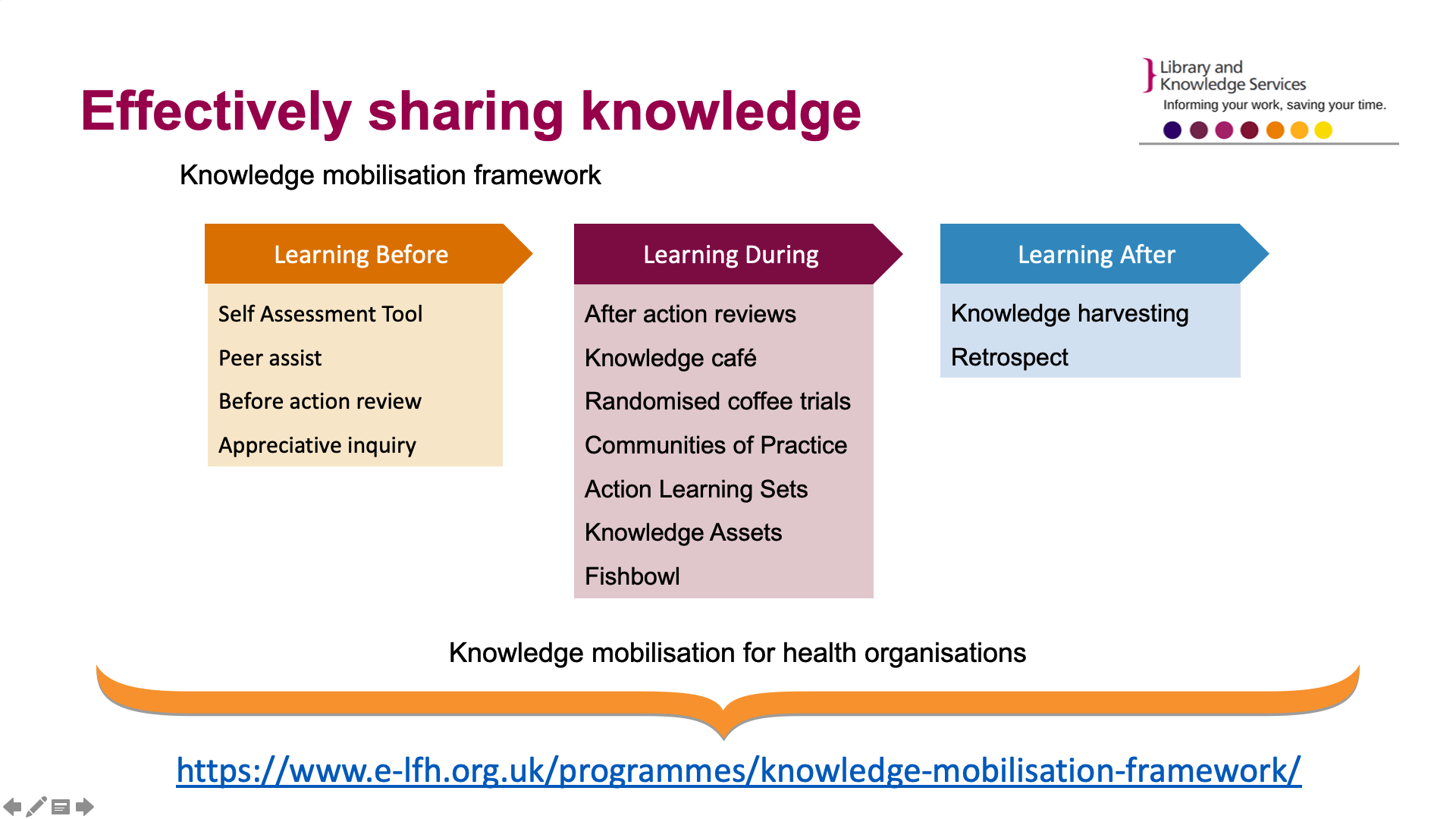
Healthcare is a knowledge based industry. Sharing the know-how of staff, using research evidence and implementing best practice are all business critical. The Knowledge Mobilisation Framework emphasizes learning throughout the an activity’s lifecycle: learning before, during and after. It provides a set of tools and techniques that are simple and quick to use that people can integrate into their daily practice, to encourage continual learning, replication of good practice and avoidance of pitfalls. The tools and techniques facilitate learning and support strategic planning, operational delivery and sustainability.
It is a cyclical process – learning before can lead to learning during and learning after which then feeds back into learning before
Learn more about the knowledge mobilisation framework.
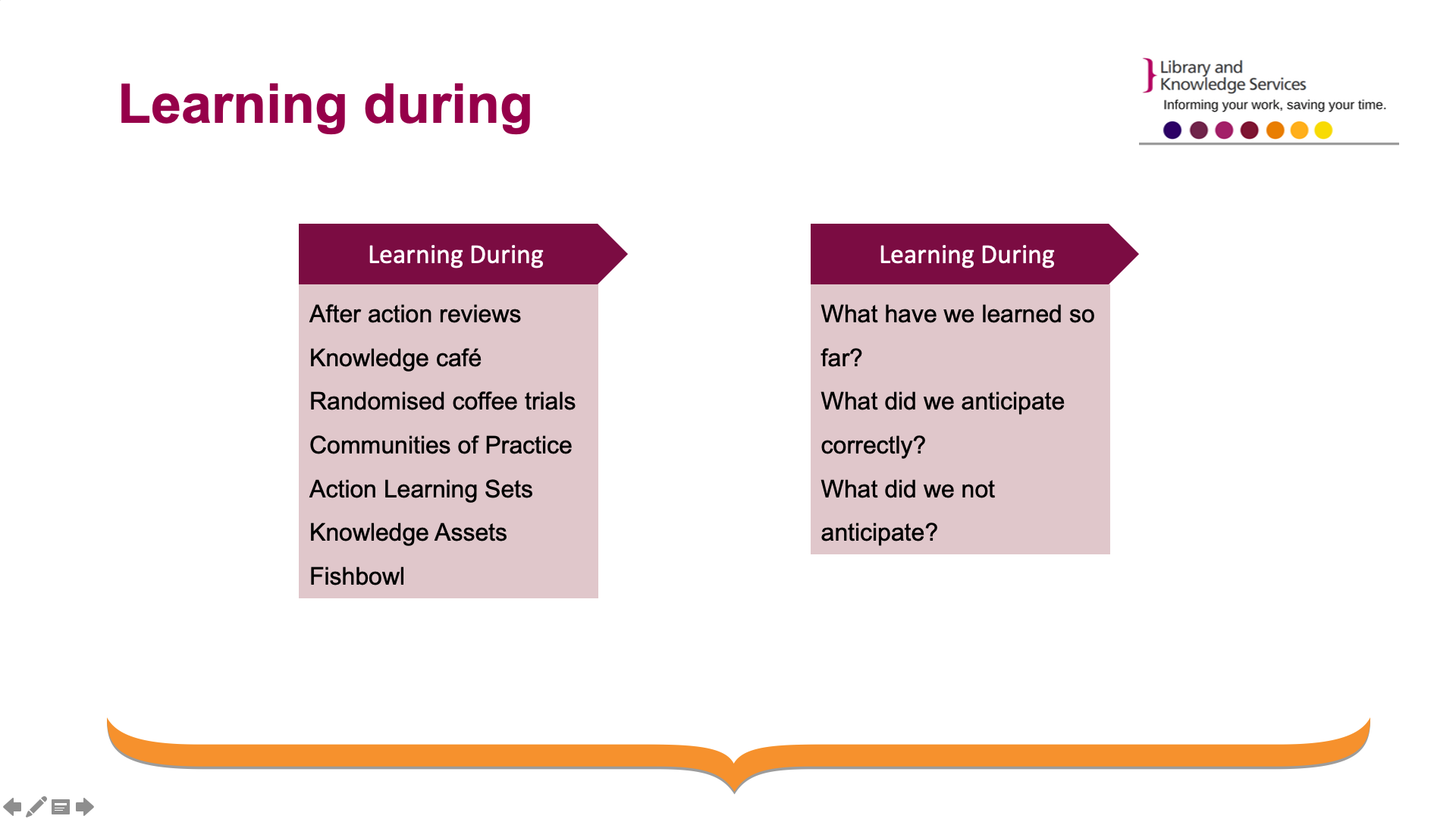
There are seven techniques in this ‘Learning During’ section of the framework. These are approaches that help us to consider learning that is taking place during a piece of work, to share experiences and build partnerships.
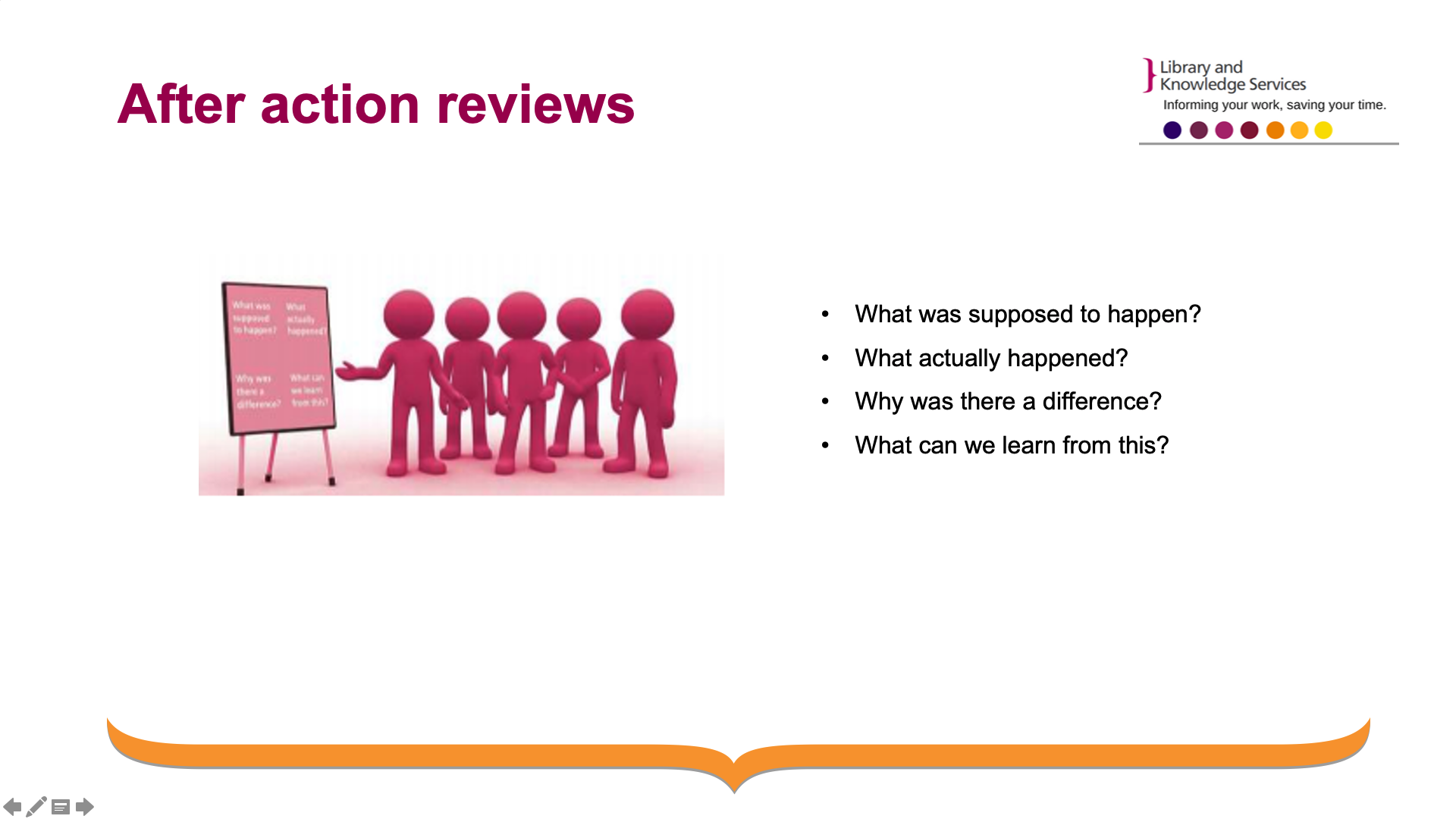
This is a quick and simple technique – based around four basic questions.
Usually a short structured meeting held immediately after an activity – maybe a training session, or following a ‘go live ‘ day, at the Study stage of taking an initiative through the Plan Do Study Act Improvement cycle. Usually facilitated by one of the team members, the trick is to invite everyone involved in the ‘action’ to participate in the After Action Review. You only need 10 to 15 minutes to capture lessons learnt that can be put into practice immediately. So this is not about waiting to pull things apart at the end of a very large project but for really taking stock after a relatively short term activity that could be part of a much bigger programme.
For longer pieces of work you might take longer.
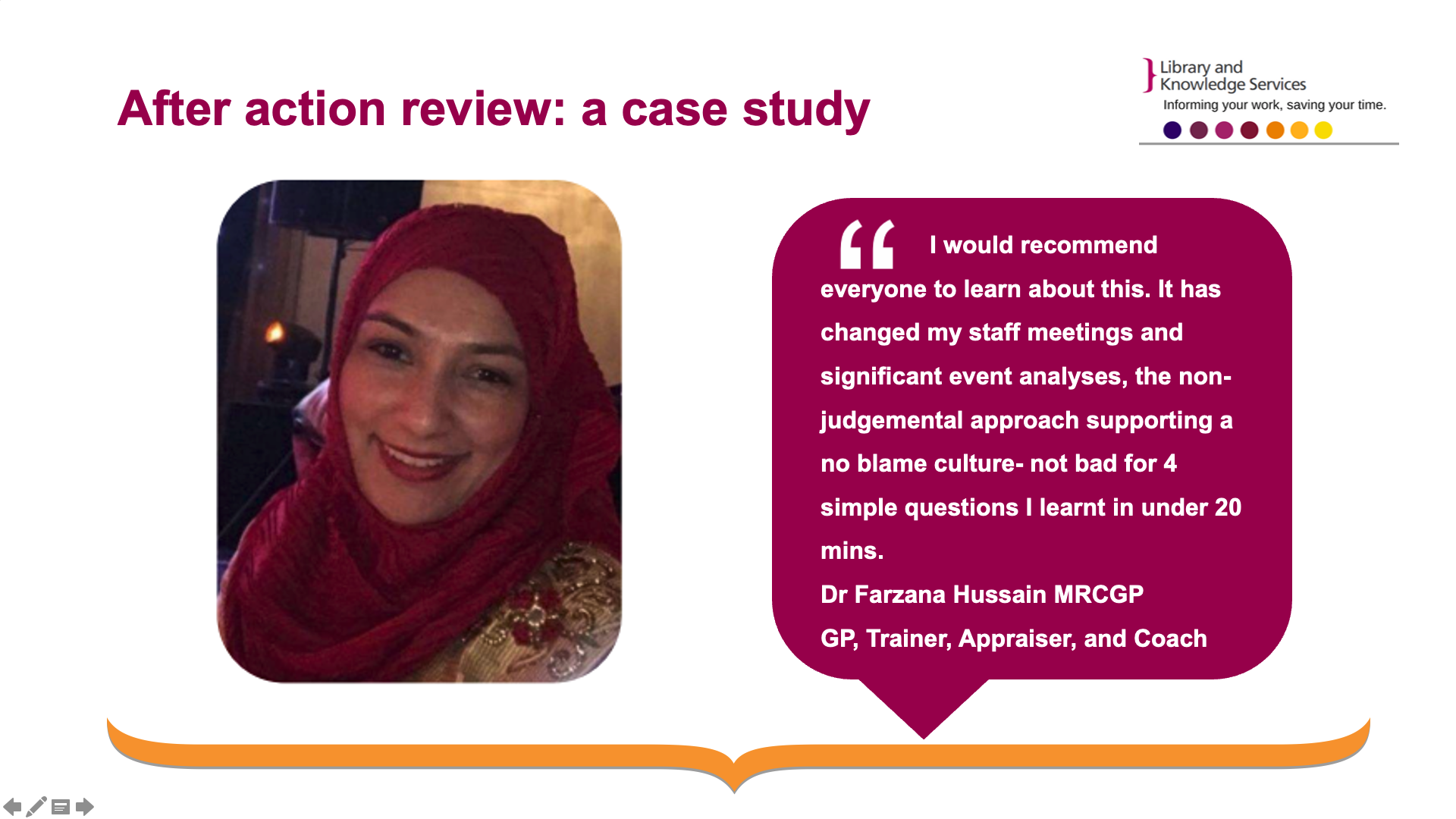
We introduced this technique at a workshop for colleagues working across primary care. Farzana put the After Action review technique to work straight away.
She has found it helpful in several different settings - for event analyses, staff performance meetings and CQC inspections and particularly favours in her words the "golden question" Why was there a difference? As it is much less judgemental than why did it happen. It shifts the conversation away from Blame and instead the focus is on learning.
As Farzana explains: “Using such simple questions can help the regulatory primary care CQC process feel kinder and more humane”
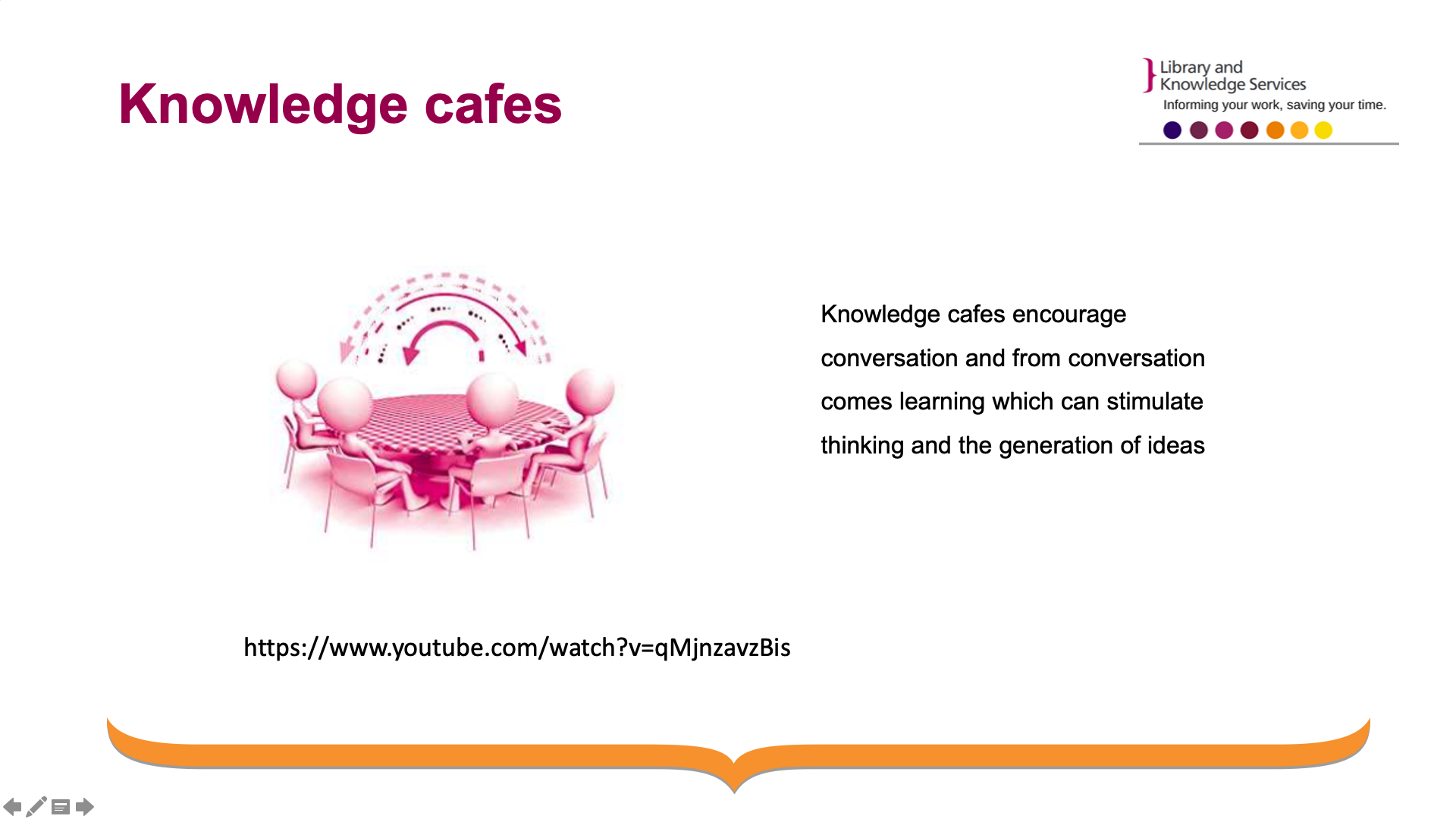
Knowledge cafes are a great way to encourage productive conversations and allow people learn from each other. The value of the Cafe is in the conversation itself and the learning that each individual takes away. These Cafes can help people to solve problems - they help to break down silos, uncover actionable insights and so drive innovation and to build a community. Advance planning is key to running a café smoothly. . Time spent devising an open-ended question that will stimulate conversations and ensure participants can really get underneath the issues. Allow 1- 2 hours.
Sarah Lewis has successfully facilitated Knowledge Cafes for her organisation. Follow the link to hear Sarah interviewing Daniel Leveson, Deputy Director of Strategy at Buckinghamshire Healthcare NHS Trust about his experience attending the Knowledge Cafe
BHT Impact of Knowledge cafes 2019
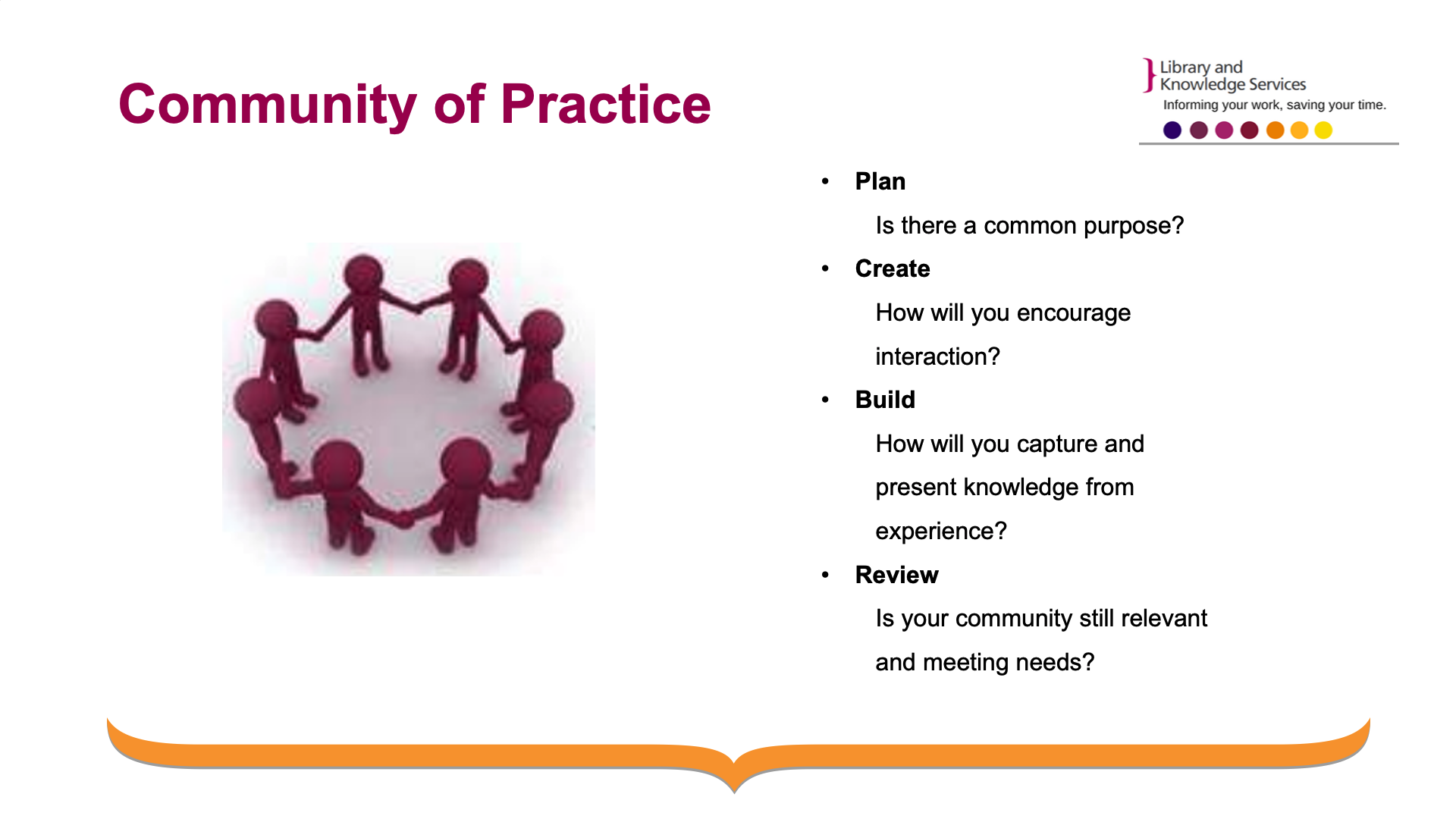
Building a community of practice brings people together who have a common purpose or shared interest where ideas and experience can be shared. The best communities of practice are nurtured to encourage interaction and keep the content relevant to group members. Often a community of practice maintains a set of knowledge assets or resources to support the learning taking place.
A basic community of practice for those interested in knowledge management has been set up by colleagues in the HEE internal knowledge specialist team. To join follow the details on the Knowledge for Healthcare blog
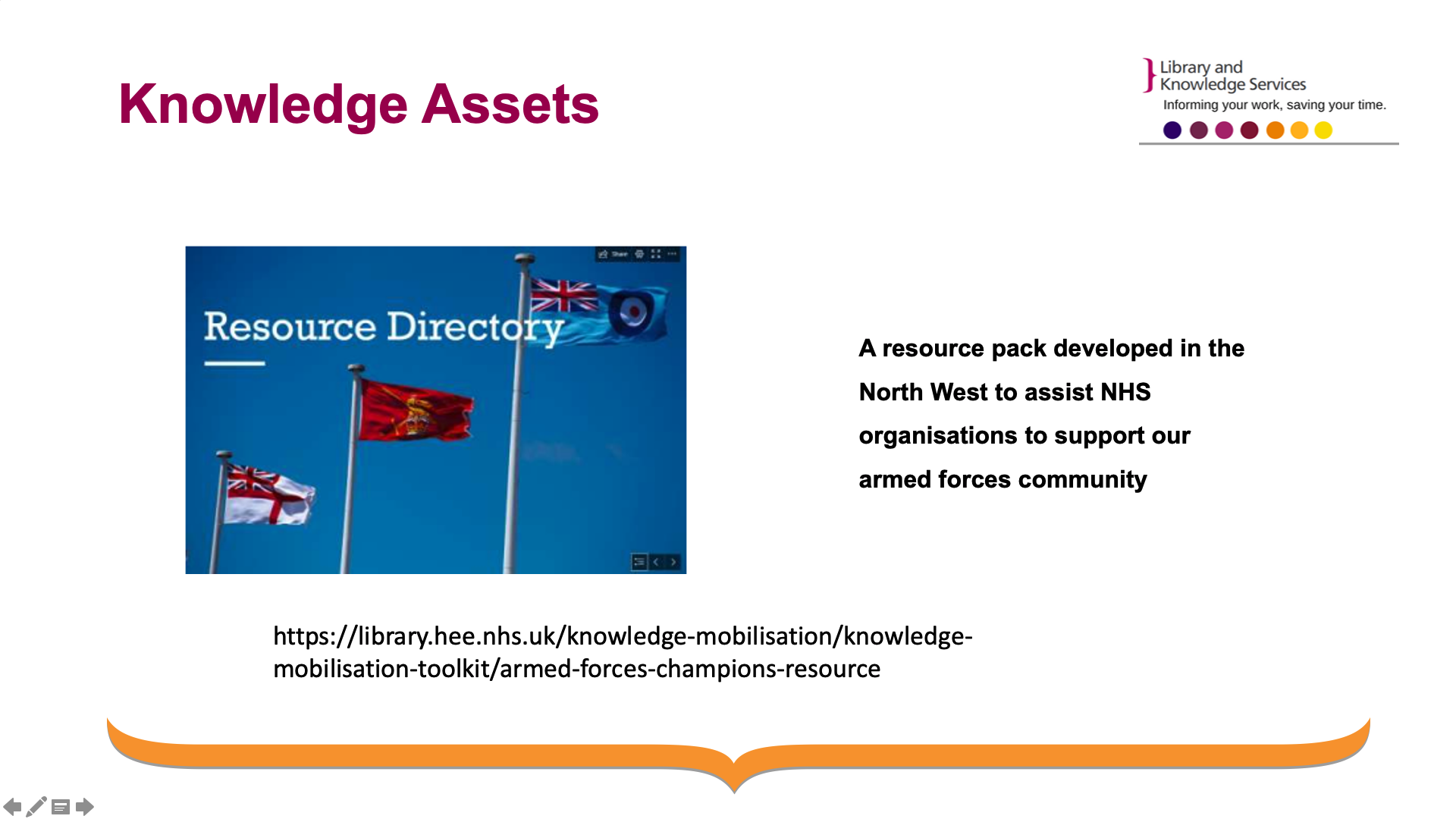
A knowledge asset packages knowledge in one place to make it easy to use by other people. They may contain key lessons learned, case histories, key contacts, best practice and published documents organised and curated to make them easy to re-use.
Katie Nicholas, Knowledge Specialist with the Health Education England internal knowledge management team helped to create a knowledge asset of resources for champions supporting the armed forces community. The resource brings together lots of useful information from a range of different sources and uses Sway, an interactive reporting tool embedded onto webpages, to help organise the information based upon themes in a set of Evidence Summaries also prepared by the team. You can find out more about this knowledge asset by visiting the knowledge management toolkit on the Knowledge for Healthcare Blog.
Have a look at an example with the Armed Forces Champions Resource
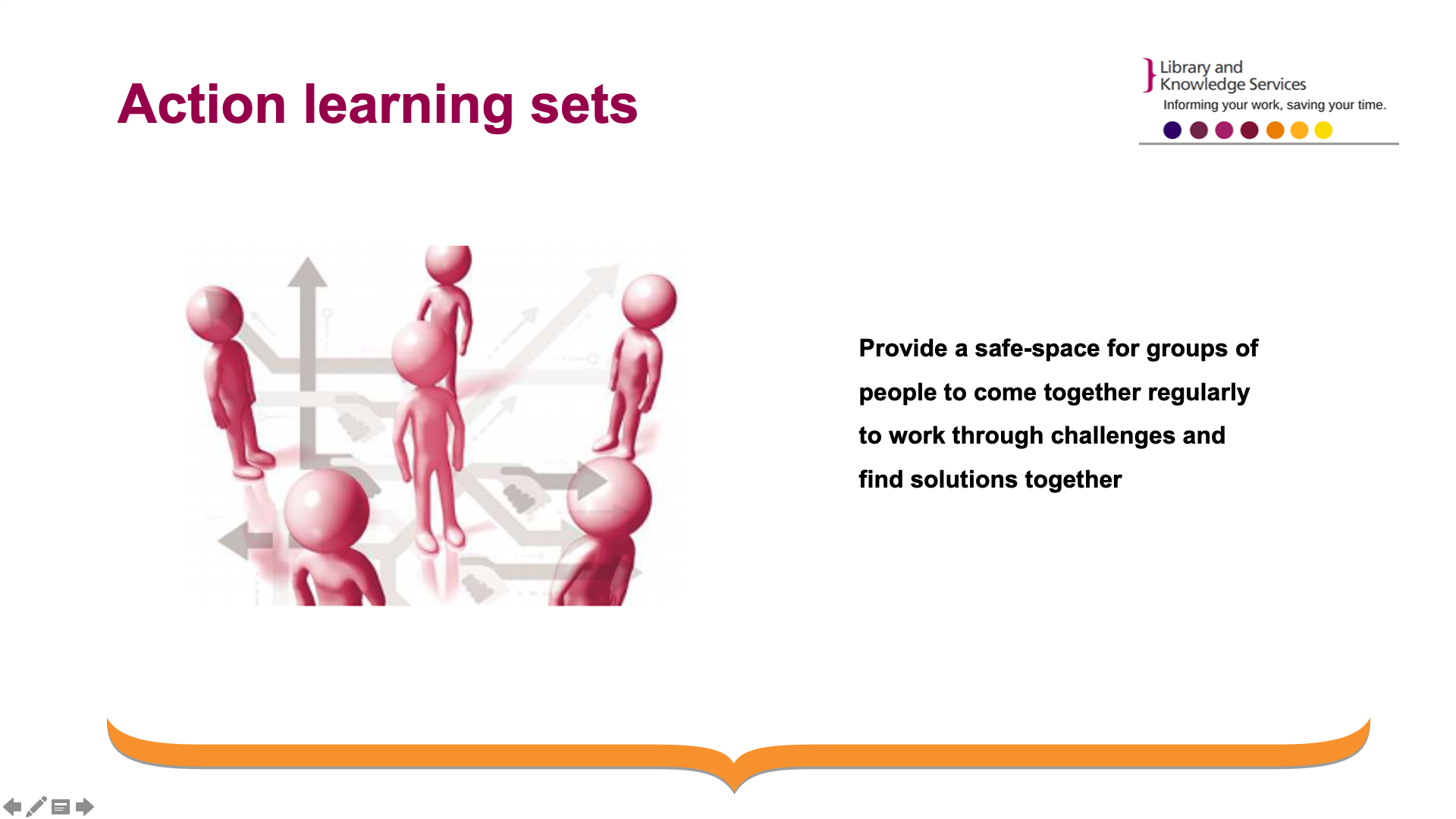
Meeting regularly as a small group these provide a safe-space for people to bring real life issues. The postcard sets out a standard structure you can use and the focus is on using coaching techniques, posing open questions to identify and trial actions to overcome issues.
Alison Day has been working with colleagues in the Organisational Development Team at The Royal Bournemouth and Christchurch Hospitals NHS Foundation Trust to facilitate action learning sets for individuals taking part in a senior leadership development programme.
Transcript: The organisational development team were looking for more people to facilitate action learning sets as part of their senior leadership development programme. I had taken part in action learning sets before and found them a really helpful way to learn from other people and find solutions to overcome work blocks and to support my own development. I had six middle leaders drawn from two local Trusts attend the five sets I facilitated. My job as facilitator was to keep the group focused on the structure of the set and to avoid the temptation to jump in with solutions before individuals had had an opportunity to fully explore the issue via a series of open coaching style questions. It was also important to create an environment where all participants were able to take away learning and where actions to put the learning into place were agreed, trialled and then discussed at the next action learning set.
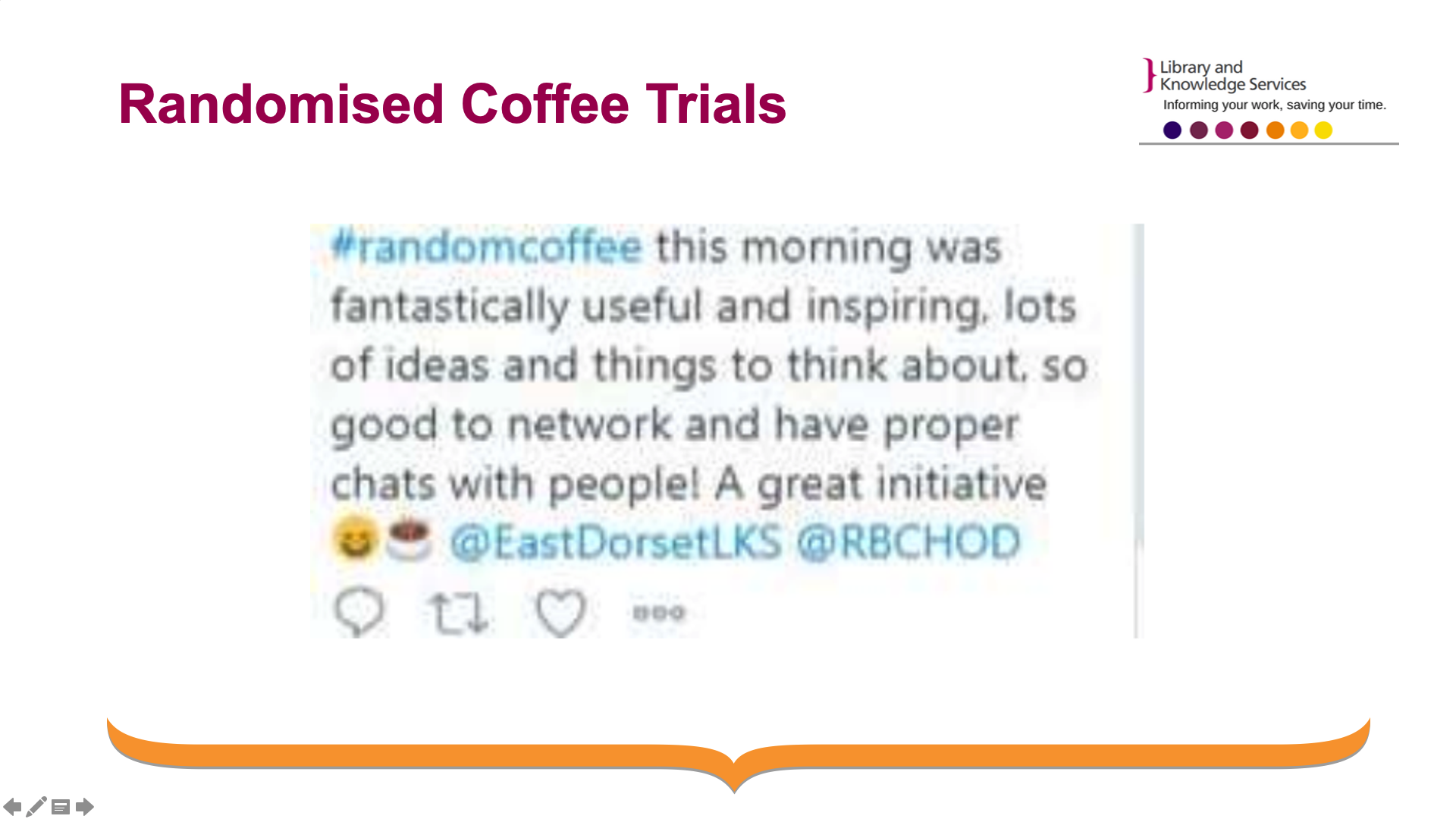
Randomised Coffee Trials are short and fun. You randomly match people to have a conversation with each other. It’s a great technique to strengthen networks, bring different disciplines together, irrespective of role. You’re simply asking people to pair up and talk for 30 minutes whether by skype/ phone or face to face. Displayed is some feedback following a Randomised Coffee Trial that took place at Royal Bournemouth & Christchurch Hospitals NHS FT
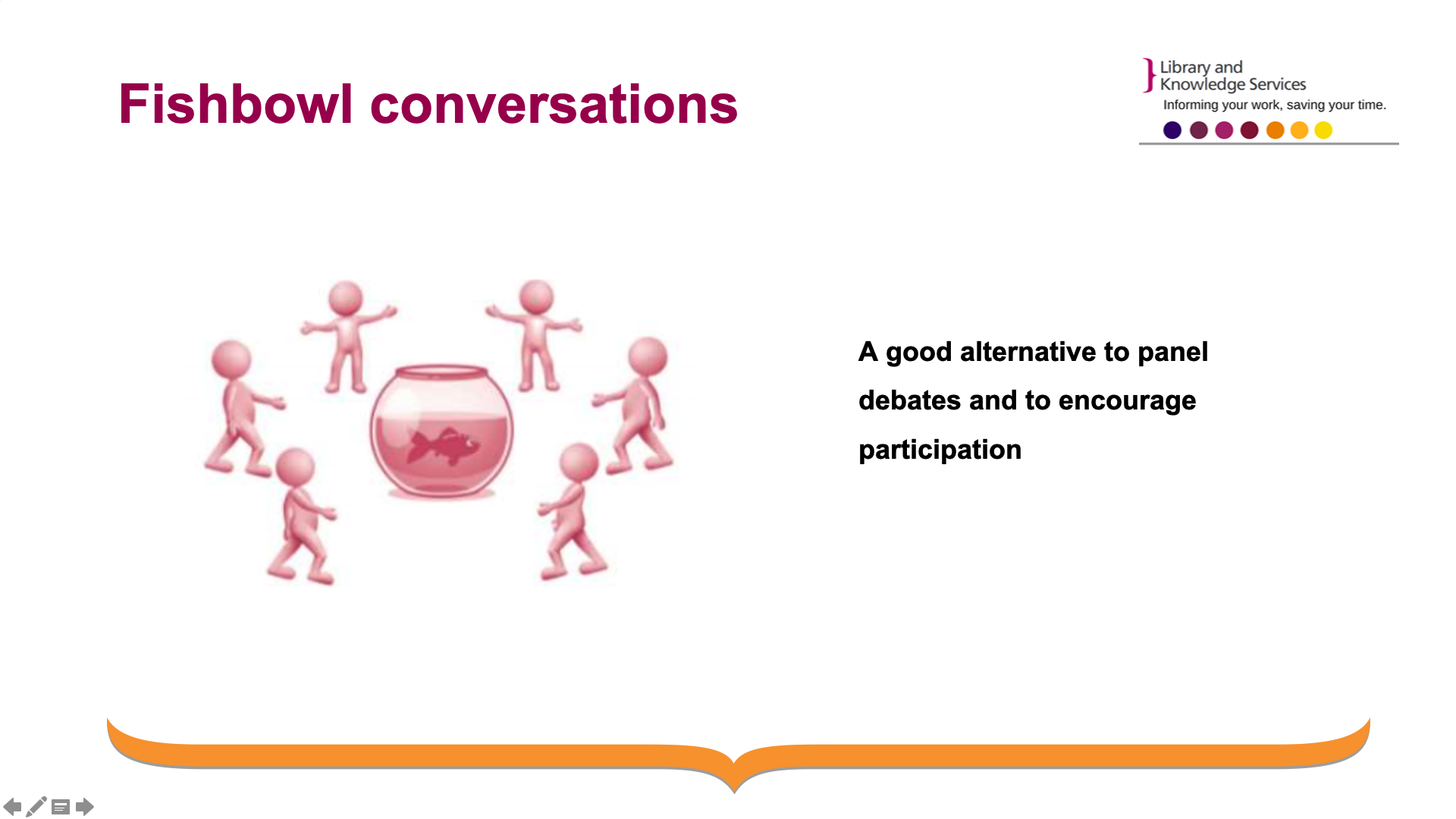
Fishbowl conversations are a useful technique for debating “hot topics” or sharing ideas and knowledge from a variety of perspectives. They can be used as an alternative to the traditional panel discussion or debate enabling more dynamic participation
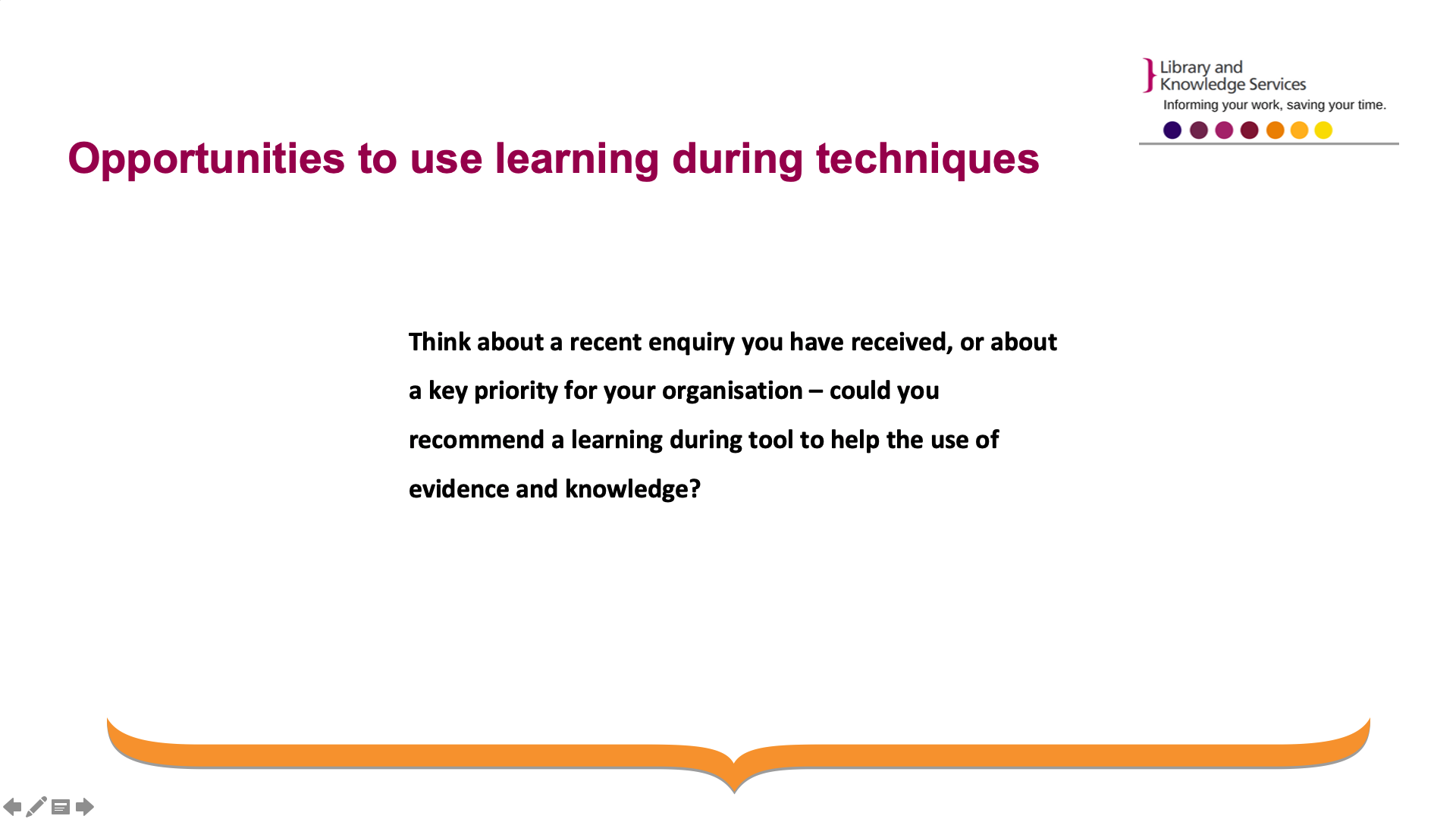
Think about a recent enquiry you have received or about a key priority for your organisation – could you recommend a learning during tool to help the use of evidence and knowledge? To get you started think about the following scenarios – how would you introduce a learning during tool
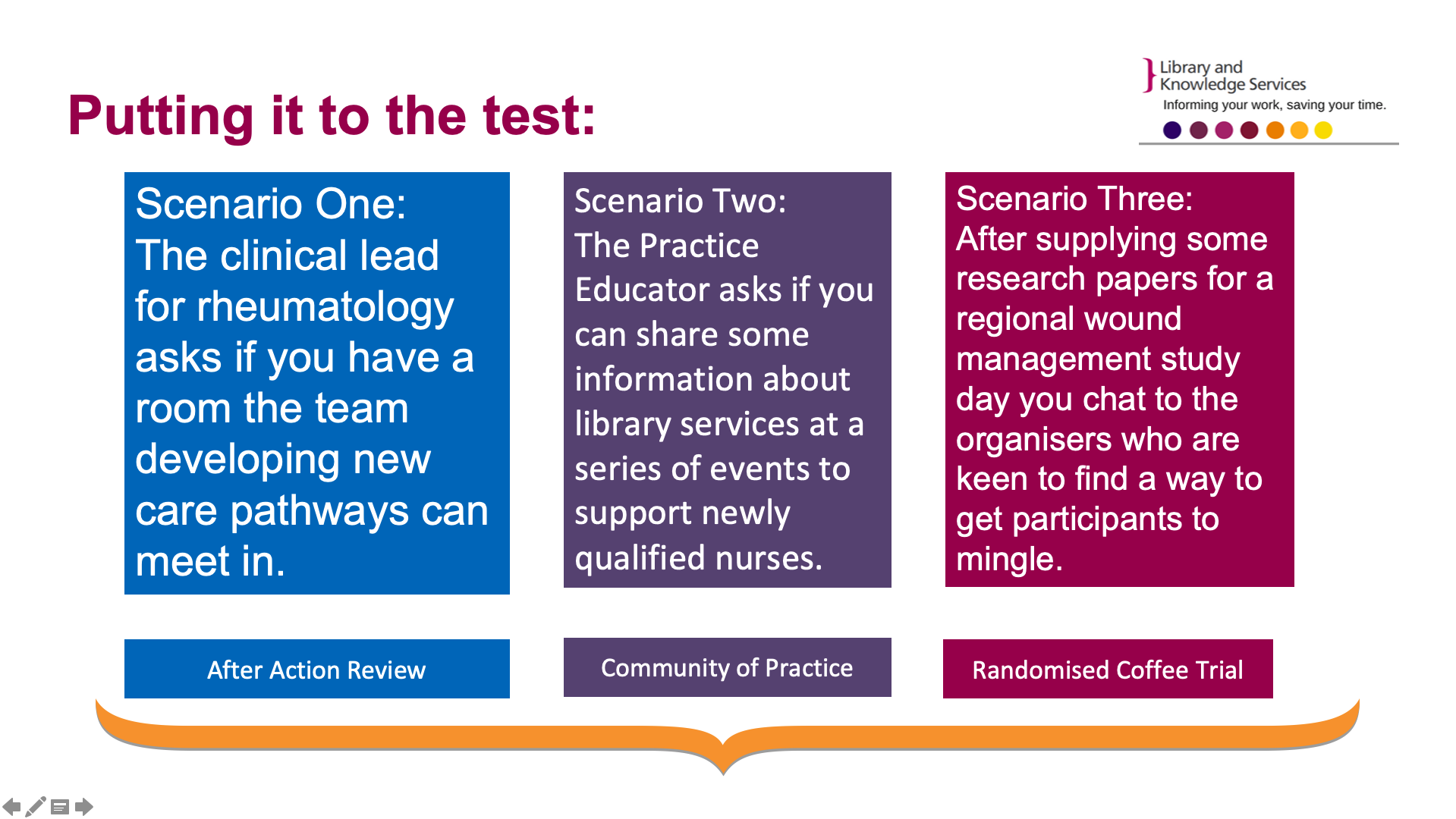
Which learning during tool might you use in the following situations?
In scenario one you are asked if you can provide a room for a small team to meet in to prepare new care pathways for rheumatology. Can you think of a knowledge mobilisation technique you might be able to offer this group? You could offer several knowledge mobilisation techniques to support this group including offering an embedded knowledge specialist to join the group to proactively source evidence to inform the new pathways. You may also offer a horizon scan or bulletin to keep the team updated about the latest evidence and may suggest that they use the simple questions from the After Action Review to reflect upon the work and make changes to their approach as they go along.
In scenario two you are asked to share information about the library and knowledge service with a group of newly qualified nurses. Is there a knowledge mobilisation technique you could also highlight to the practice educator? You may want to offer a range of options to the Practice Educator - perhaps offer to help facilitate some action learning sets, organise a knowledge cafe or fishbowl conversation, set up a horizon scan or bulletin or you may help to set up a community of practice to bring the group together to learn from each other and maybe develop a specialist webpage, sharepoint area or intranet page specifically for this group to share their learning.
Scenario three is a follow-up from providing a research paper where you discover that a study day will be taking place. In addition to having a stand to promote the evidence search service what other learning during technique could you offer? As the organiser is particularly keen to get people to meet you may share with them the idea of holding a randomised coffee trial as this is a great way to encourage participants at an event to go and speak to someone they have not met before.
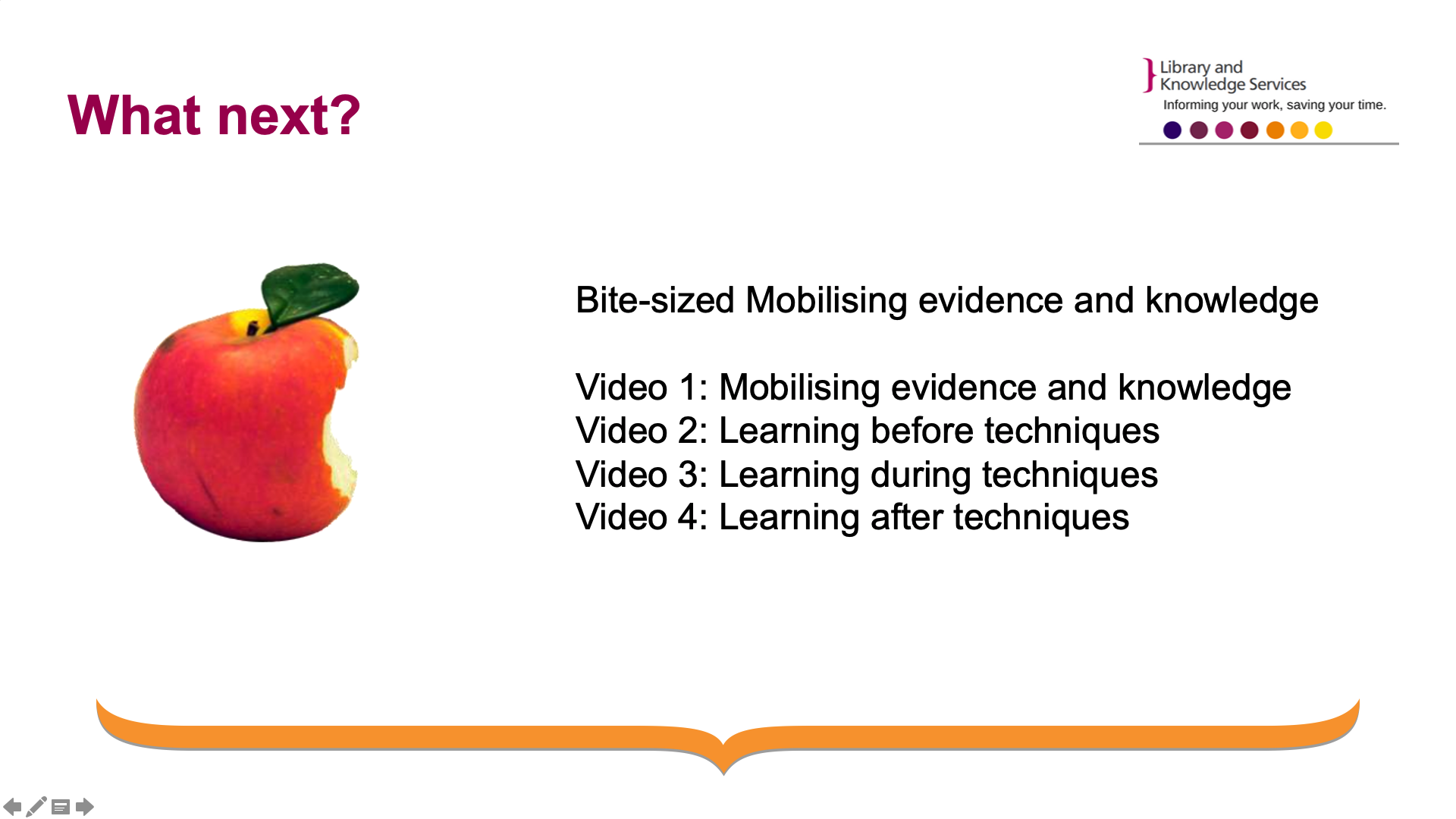
The next bite sized sessions will explore some of the knowledge mobilisation techniques in more detail, make suggestions for how to get started and provide examples of how they have been used by other knowledge specialists. For further examples visit the KM Toolkit.
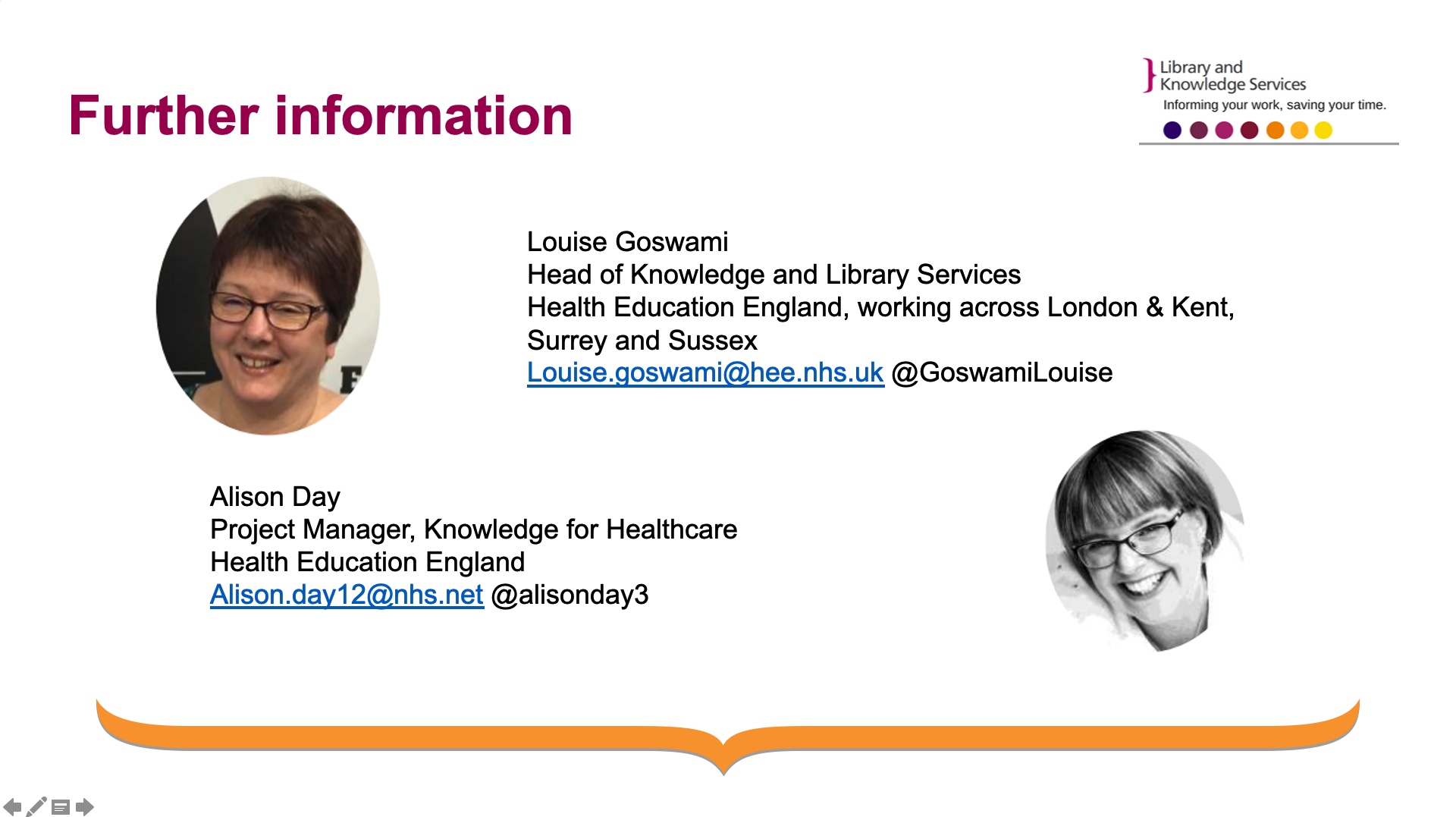
If you would like further information or to share what you have been doing to mobilise evidence and knowledge in your organisation please contact members of the Mobilising Evidence and Knowledge Group